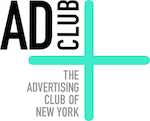NAD’s Buzzfeed Decision May Be A Roadmap For Affiliate Marketing

By: Allison Fitzpatrick and Gary A. Kibel
The National Advertising Division (NAD) recently declined to review the statements made by BuzzFeed, Inc. (BuzzFeed) about a moisturizer in one of its online “shopping guides,” despite the inclusion of affiliate links in the article. Notably, this NAD decision offers guidance for online publishers as to whether the presence of affiliate marketing links in an article transforms editorial content into an advertisement and triggers an obligation on the publisher to provide substantiation for any product claims in the article.
The Shopping Guides
BuzzFeed, a digital media publisher, creates shopping guides, which consist of product lists that its editorial staff recommends to its readers. In one shopping guide, an editor made claims about St. Ives Renewing Collagen & Elastin Moisturizer. The NAD asked BuzzFeed to substantiate those claims about the moisturizer included in the shopping guide.
In response, BuzzFeed asserted that these statements about the product were not “national advertising” and, therefore, were not subject to the NAD’s jurisdiction. Moreover, because the statements were not “national advertising,” BuzzFeed contended they did not require the type of substantiation needed for advertising claims.
The NAD’s Decision
The NAD agreed with BuzzFeed that the content was not “national advertising” subject to its jurisdiction because it was not a “paid commercial message.” Instead, the NAD determined the shopping guide was editorial content that did not have the “purpose of inducing a sale” and was not “controlled by [an] advertiser.”
The NAD reasoned that, in this case:
o The affiliate link was not placed on “paid-for” advertising;
o The moisturizer featured in the shopping guide was chosen by BuzzFeed’s editorial staff without its business staff’s input;
o The retailer or brand did not have any say in whether the product was recommended or what was said about it;
o The affiliate links for the product were added to the shopping guide after the editorial content was completed; and
o The recommendations in the shopping guide were not changed after the fact based on the availability of affiliate link revenue.
In summary, the NAD determined the BuzzFeed content was “created independently of and prior to the addition of affiliate links to the article” and was not tied to any “economic or commercial motivation” that could be introduced by the presence of affiliate links. Therefore, the NAD declined to retain jurisdiction over the matter. However, if the affiliate links had been placed in “paid for” advertising, the NAD’s jurisdiction would not have been in question.
BOTTOM LINE
Online publishers using affiliate links in association with content that reviews or recommends products to consumers must disclose their relationship with the retailers. In addition, online publishers using affiliate links in paid-for advertising must be able to substantiate product claims in their content. When content is not a paid commercial message but, rather, is independent editorial content, there is no requirement that the publisher be able to substantiate claims about the product made by its editorial staff despite the presence of affiliate links in the article. Online publishers and marketers should be mindful of the steps taken by BuzzFeed to maintain independence between editorial content and commercial affiliate marketing activities.
AUTHOR(S):
· ALLISON FITZPATRICK
o Partner
o 212.468.4866
o afitzpatrick@dglaw.com
o Advertising, Marketing & Promotions
· GARY A. KIBEL
o Partner
o 212.468.4918
o gkibel@dglaw.com
o Digital Media, Technology & Privacy
